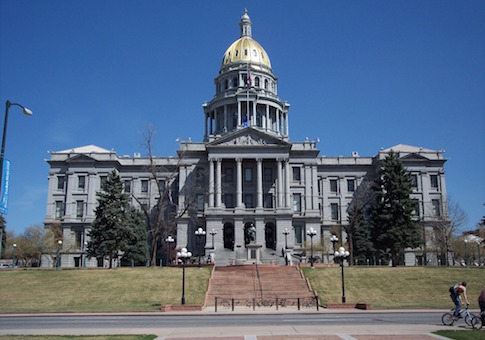Colorado voters Tuesday rejected a ballot question that would have let the state increase its revenues by keeping monies that are over collected.
The Taxpayer Bill of Rights, or TABOR, is a law that caps state spending every year using a formula based on population and inflation. Monies collected in excess of that spending limit are supposed to be returned. Proposition CC asked voters to let the state keep those over collections in perpetuity rather than cut refund checks or give the money back in other legally allowed ways.
The rejection of the measure may signal to Democratic presidential candidates that swing-state voters are reluctant to green light new taxes or spending programs.
The election was called by the Associated Press less than two hours after polls closed in the state. At the time, the measure was losing roughly 55-45 with dozens of counties still outstanding.
Although tax rates may remain unchanged, revenues to the state can surge when the economy is good, and if those revenues exceed what the state can legally spend under TABOR, the refund is triggered.
The revenue over the next three years that would be returned to voters is estimated to be between $1.2 and $1.5 billion, based on economic forecasts provided to the state legislature. Toward lower income tiers, the refunds in each of those years might be anywhere from $35 to $90, while upper income joint filers could see refunds between $750 and $1,000.
Since its adoption into the state constitution by voters in 1992, TABOR has been the lodestar of Colorado politics. It has been generally been celebrated by Republicans and denounced by Democrats because of the way it strictly regulates state spending, and because it mandates that all tax increases be approved by a public vote.
Tuesday's vote happened against the backdrop of the 2018 elections in which Colorado Democrats flexed their newfound popularity by sweeping every statewide office on the ballot that year and gained the three main levers of government in the state after producing a new majority in the state senate.
"Colorado is a state that is wholly owned by progressives," said Jon Caldara, president of the free market think tank the Independence Institute in Denver.
"The [Democrats have the] house, the senate, the governor's office, four statewide offices—given how strong that is, it should have been a slam dunk for Prop CC to pass. And so it proves that the Taxpayer Bill of Rights has massive crossover appeal."
Voter registration numbers in the state show even if Republicans were solidly against Proposition CC, they still would have needed a coalition beyond their own party to defeat it.
Democratic governor Jared Polis endorsed the proposition.
"If voters approve Proposition CC, it will dedicate funding to help attract and keep the best teachers in our schools; reduce the cost of community college and college for students, and reduce traffic and improve safety on our roadways," Polis wrote in an op-ed.
"It also comes with unprecedented transparency and accountability for how the money is spent: requiring that public audit each year to show voters where the money from Proposition CC was spent," he continued. "That’s smart accountability."
In the end, voters disagreed.
(Disclosure: The author of this article was previously employed at the Independence Institute.)
